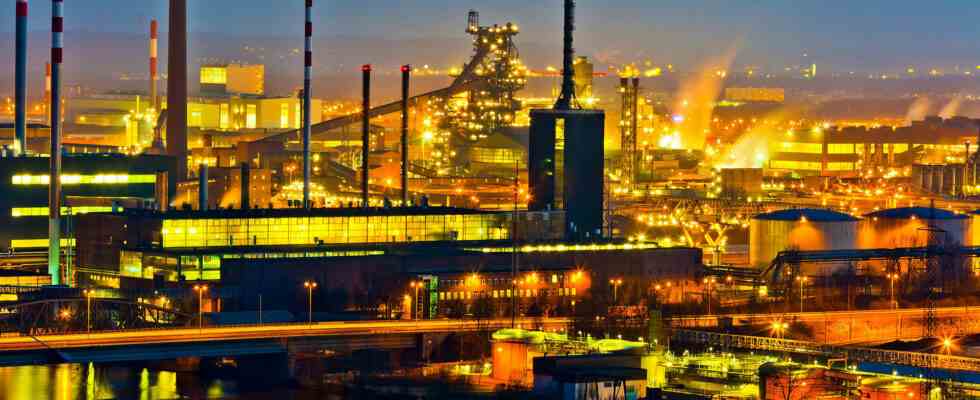Status: 01/29/2023 09:03 a.m
Too few skilled workers, too dependent on expensive energy imports, too much bureaucracy: According to leading economic research institutes, the German economy is facing years of weakness.
According to economists, the German economy is facing a phase of weak growth that will last for years. The German Institute for Economic Research (DIW), the Institute for World Economics (IfW), the Leibniz Institute for Economic Research (RWI) and the Ifo Institute all assume that the annual growth rates will be below one percent in the medium term – and thus very much much lower than the average for the past 30 years.
“The potential growth for the German economy is likely to fall below 1.0 percent in this decade,” said DIW President Marcel Fratzscher when asked by the dpa news agency. This is mainly due to the decline in employment due to demographics and a shortage of skilled workers.
“Innovative technologies overslept”
But there are also major economic policy mistakes: “The weakening of Germany’s economic potential is due to its own failures and has little to do with the war in Ukraine or the corona pandemic.”
The DIW President criticized the “failed ecological transformation so far, which has meant that Germany is far too dependent on fossil and very expensive energy imports and has overslept the technological transformation to sustainable and innovative technologies” as the greatest failure. Added to this would be excessive bureaucracy and the preservation of vested rights, which would hamper private investment. In addition, the state investment deficit has meant “that the German state has lived on its substance for a long time”. The problem of skilled workers will pose an existential threat to numerous companies in the coming years.
“Not the end of the road yet”
According to the IfW, the German economy has grown by an average of 1.4 percent annually over the past 30 years. According to the institute’s medium-term projection, this should drop to less than 0.7 percent by 2027. “This is not the end of the road,” said Vice President Stefan Kooths.
The assessment of RWI Essen is similar: “The crises of the past two years have weakened the growth of the German economy, but it would have decreased in the coming years anyway,” said economic chief Torsten Schmidt. According to the RWI’s medium-term projection, growth in production potential is likely to fall from one percent this year to 0.6 percent in 2027.
“The shortage of skilled workers is becoming even more noticeable”
According to the Ifo Institute, under normal circumstances growth rates in German economic output should range between around 0.5 and 0.75 percent by the end of the decade. Since the baby boomer generation is retiring from the workforce and fewer people are taking over, the absence of older people can no longer be compensated for. “This means that the shortage of skilled workers that is already being observed will increase even more noticeably in the coming years,” said Ifo economic researcher Robert Lehmann.
In the transition phase, when the baby boomers retire, consumers and their spending mood initially remained quite stable, according to Lehmann. It could also be that “the high savings of the then living pensioner generation lead to a significant boost in consumption”. However, production opportunities and economic growth would be lower.

